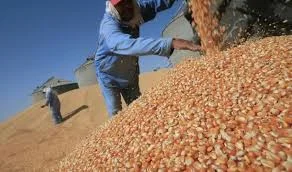 Kenya has initiated trials of genetically modified (GM) maize as part of efforts to address the ongoing food shortage in the country. This initiative comes in response to the significant challenges faced by local farmers due to climate change, pests, and diseases, which have severely affected maize production.
Kenya has initiated trials of genetically modified (GM) maize as part of efforts to address the ongoing food shortage in the country. This initiative comes in response to the significant challenges faced by local farmers due to climate change, pests, and diseases, which have severely affected maize production.
Objectives of the GM Maize Trials
The primary goal of testing genetically modified maize is to enhance crop yields and resilience. The new maize varieties are engineered to resist various pests and tolerate drought conditions, which are increasingly common in Kenya. Officials from the Ministry of Agriculture stated that successful trials could lead to increased food production and improved food security for millions of Kenyans who rely on maize as a staple food.
Collaboration with Research Institutions
The trials are being conducted in partnership with various agricultural research institutions, including the Kenya Agricultural and Livestock Research Organization (KALRO). These institutions are tasked with monitoring the performance of the GM maize under different environmental conditions. Preliminary results are expected to inform policymakers about the potential benefits and risks associated with genetically modified crops.
Regulatory Framework and Public Concerns
Kenya’s government has established a regulatory framework for biotechnology, which includes strict guidelines for the testing and commercialization of genetically modified organisms (GMOs). While some agricultural experts and stakeholders support the introduction of GM crops as a solution to food insecurity, there are public concerns regarding the safety and long-term impacts of GMOs on health and the environment. The government has committed to transparency throughout the testing process to address these concerns.
Potential Impact on Food Security
If successful, the introduction of genetically modified maize could significantly boost food production in Kenya, where maize shortages have led to rising food prices and increased dependency on imports. Agriculture experts highlight that enhancing maize yields is crucial, especially as the country faces recurrent droughts and unpredictable weather patterns.
Next Steps in the Testing Process
The ongoing trials are expected to continue for several months, with evaluations on the growth, pest resistance, and overall performance of the GM maize. After thorough assessments, results will be shared with the public and stakeholders to facilitate informed discussions regarding the future of GM crops in Kenya.
As the trials progress, Kenya aims to explore innovative solutions to ensure food security, ultimately supporting the livelihoods of its agricultural communities.






















